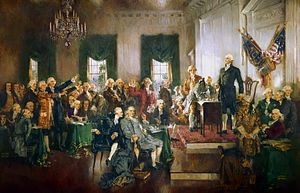“When legend becomes fact, print the legend”–in the lead up to the June 23rd referendum on Great Britain’s membership in the European Union the majority of UK media appeared to have adopted the advice of a conniving reporter in the legendary Western film The Man Who Shot Liberty Valance: British tabloids have fed the public a steady stream of half-truths and distortions painting the picture of an undemocratic out-of-control bureaucratic behemoth in Brussels that needs to be discarded as quickly as possible, lest it grabs the last remnants of ancient British liberty.
As a consequence, throughout the run-up to the Brexit referendum, it was impossible to have informed public debates on the costs and benefits of Britain’s membership in, or exit from, the European Union. The voices of reason were further drowned out in the echo chambers of social media platforms that only reinforced pre-existing opinions held by voters on the Brexit—destroying any chances of genuine dialogue.
Indeed, the whole spectacle of a referendum—a “device of dictators and demagogues,” in the words of Margaret Thatcher—underlined a salient point: our soundbite culture, combined with political populism, renders direct democracy in the form of a referendum entirely unsuitable as a tool for deciding complex policy issues.
This is not a new revelation. Some of the American Founding Fathers were vehemently opposed to direct democracy. They feared the consequences of an uninformed public formulating a country’s policy on a particular subject, realizing that one of the most important preconditions for direct democracy, i.e. a rational discussion of the issue where all points of view are carefully weighed, would not be possible amidst demagogy and the “tyranny of the majority,” as John Adams put it.
For example, Alexander Hamilton believed in America but not in Americans when he said in a June 1788 speech defending the ratification of the U.S. Constitution: “That a pure democracy if it were practicable would be the most perfect government. Experience has proved that no position is more false than this. The ancient democracies in which the people themselves deliberated never possessed one good feature of government. Their very character was tyranny; their figure, deformity.”
Hamilton participated in the American Revolution, an event that left him with a deep fear of mob rule and made him question the wisdom of the masses after witnessing revolutionary excesses in New York City (including witnessing how a mob tried to lynch the headmaster of his university). As a result of his experiences, he firmly believed throughout his life that it was often necessary to leave the public in the dark during important political deliberations. Participating in the Constitutional Convention in 1787, Hamilton observed: “Had the deliberations been open while going on, the clamors of faction would have prevented any satisfactory results.”
Other Founding Fathers concurred with Hamilton’s skepticism. In the tenth essay of the Federalist Papers, written in defense of the U.S. Constitution, James Madison argued for representative democracy over direct democracy in order to protect the individual from what Edmund Burke called the “swinish multitude:”
Those who hold and those who are without property have ever formed distinct interests in society. (…) The regulation of these various and interfering interests forms the principal task of modern legislation, and involves the spirit of party and faction in the necessary and ordinary operations of the government. (…)
[A] pure democracy, by which I mean a society consisting of a small number of citizens, who assemble and administer the government in person, can admit no cure for the mischiefs of faction. A common passion or interest will be felt by a majority, and there is nothing to check the inducements to sacrifice the weaker party.
Madison was thus skeptical that direct democracy would be a suitable form of government for forging consensus and making informed decisions. Rather, Madison and Hamilton preferred a rule by experts, elected by the people to act on behalf of them and leave complex policy decisions to them to decide—the essence of representative democracy. This consensus was embraced by European democracies until now. (Even Switzerland operates only a semi-direct democratic system.) Of course, this requires that elected officials are able to work with each other constructively; something that unfortunately has not been the case in many Western democracies as of late, and certainly contributed to the outcome of the June 23 referendum. As the British Justice Secretary Michael Gove recently said: “People in this country [the UK] have had enough of experts.”
(Gove, on the issue of Brexit the most prominent dissenter in David Cameron’s pro-EU cabinet, also invoked the American Revolution in speeches saying that it was time for the UK to follow “the Americans who declared their independence and never looked back” and “become an exemplar of what an inclusive, open and innovative democracy can achieve.” He appears to have missed the irony in his remarks given that the American Revolution was first and foremost an uprising of the colonial elite and big business not the masses.)
However, the Founding Fathers had it right. There is an inherent danger coming from direct democracy when combined with an uninformed and manipulated public that has to decide the policy of a country, as we saw on June 23 when 36 percent of eligible voters in the UK chose to exit the European Union. Again, this should not come as a surprise. In one sense, the Brexit referendum illustrates as much the failure of the experts and elected politicians as it shows that relying on the masses and populism can lead to suspect and potentially damaging decisions. In that sense, we have to guard ourselves against direct democracy being hijacked by demagogues and populists lest we have to endure the “tyranny of the majority” at the expense of wiser policies.

































